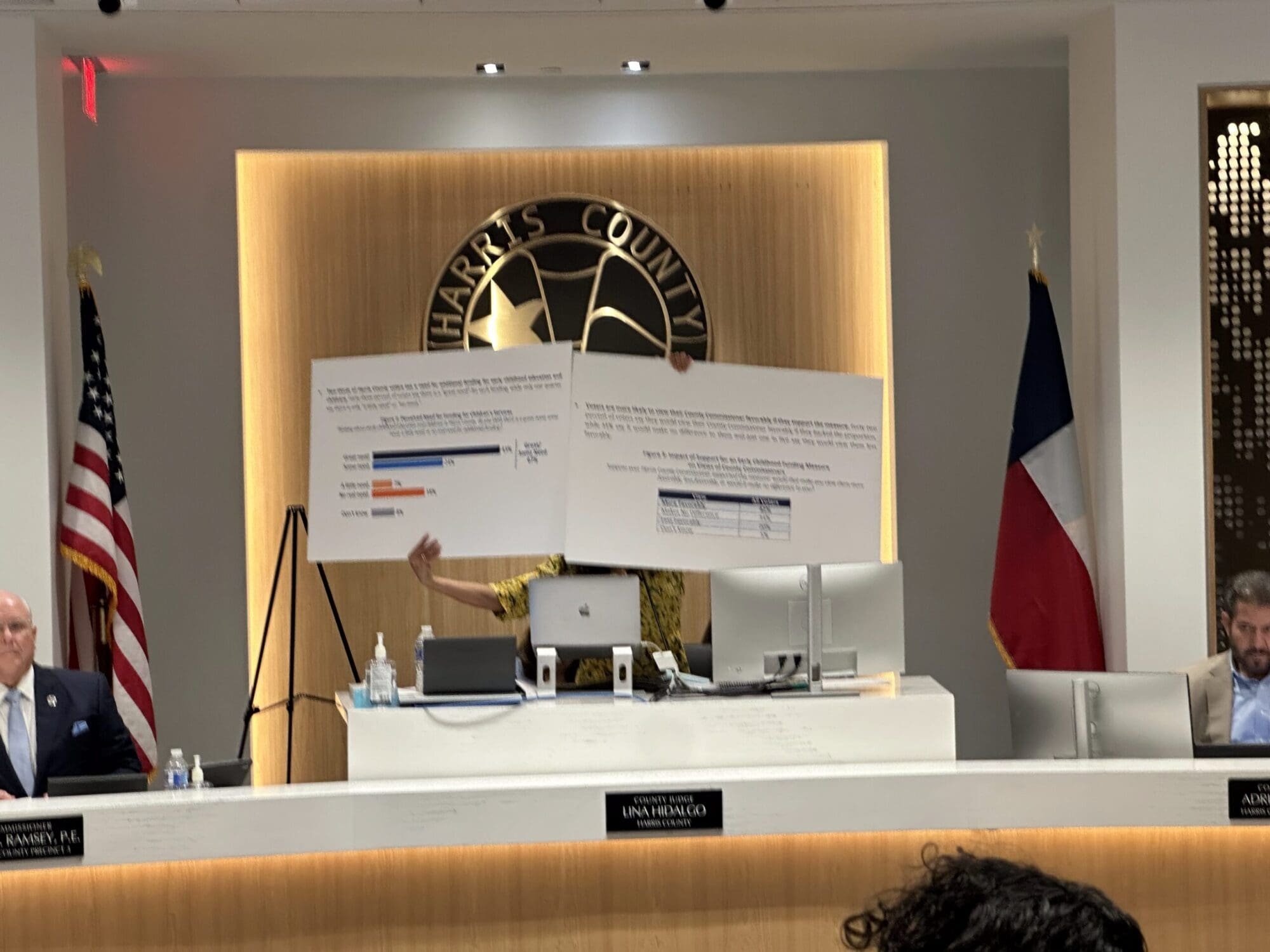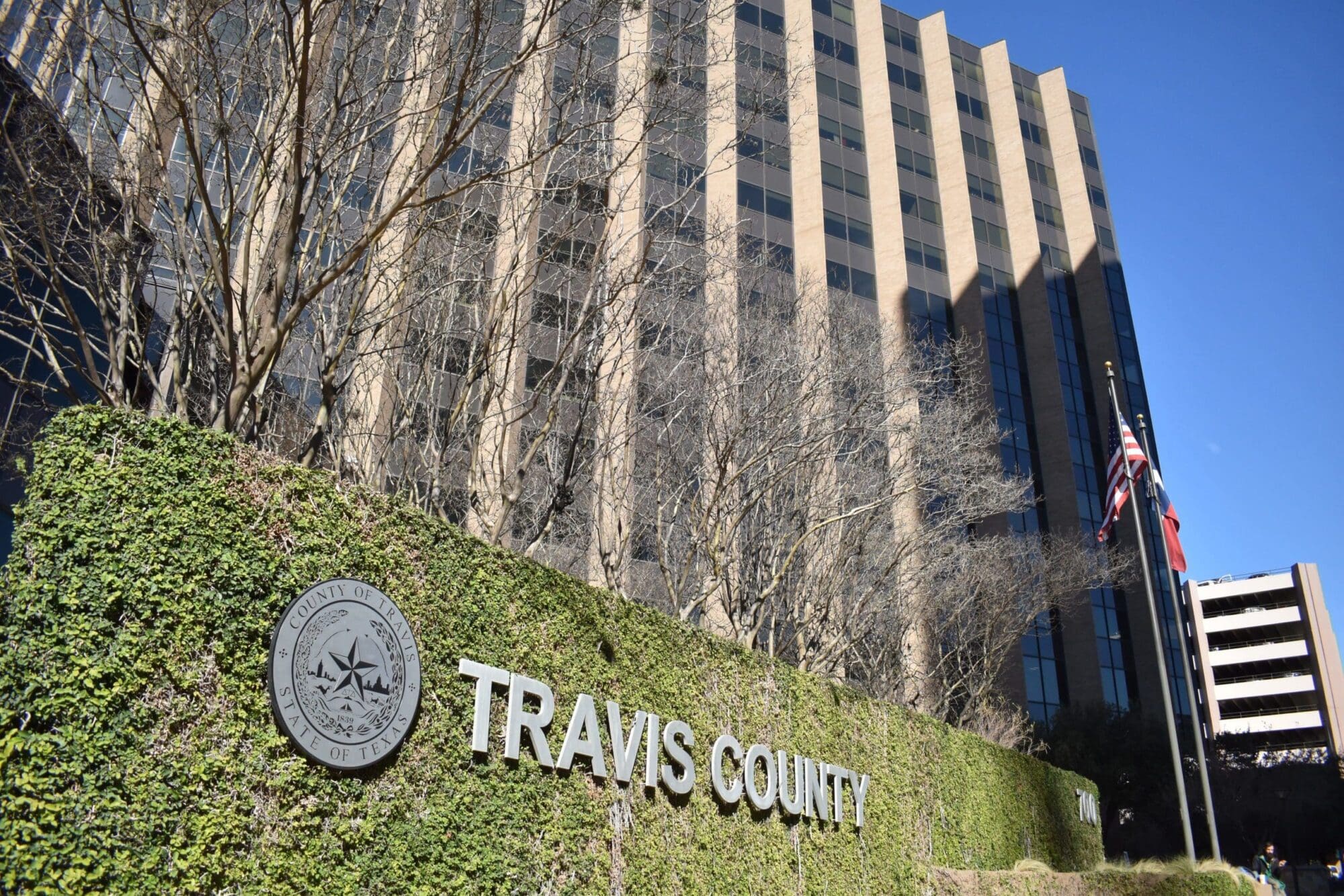In a press conference held in Fort Worth on Tuesday, the state’s “Big Three” political leaders announced a legislative proposal aimed at the capital city, 200 miles away.
Texas Gov. Greg Abbott, Lt. Gov. Dan Patrick, and outgoing Speaker of the House Dennis Bonnen announced a plan to freeze property tax revenue for any cities that defund police.
“Any city that defunds police departments will have its property tax revenue frozen at the current level,” said Abbott. “They will never be able to increase property tax revenue again if they defund police.”
“When crime is on the rise, the last thing we should do is defund law enforcement,” Abbott added.
Abbott cited a study naming Austin “the No. 1 city in America in the year-to-year percentage increase in murders, with a percentage increase of more than 64 percent for the first half of this year.” The study showed Austinites are also experiencing rising numbers of robberies and aggravated robberies.
Last week, the all-Democrat Austin City Council made headlines for slashing their police department by one-third, removing $150 million from the police budget in next year’s budget and, instead, reallocating the money to be used for abortion-related programs.
“Not only has Austin defunded their police, but they’ve taken away vital weapons that they could use to disperse crowds,” said Patrick, noting it was Texas DPS troopers who kept citizens safe during recent violent protests in the capitol.
Abbott’s threatened move is intended to be retributory, even as citizens have demanded meaningful relief from skyrocketing property taxes for years.
After property tax reform legislation passed last year, cities are currently prohibited from raising overall tax revenue by more than 3.5 percent annually without voter approval. Senate Bill 2—the legislation that provided the reform—was met with stiff opposition at the time from local officials, including Austin Mayor Steve Adler, who said such a measure would result in a “risky” $15 million cut to their police departments.
Bonnen quoted Adler’s 2018 testimony opposing SB 2’s voter-approval caps on property taxes as a “threat to public safety.”
“Why now, in 2020, does Mayor Adler support the socialist agenda to cut our police department?” he asked.
From a practical perspective, however, the movement from Abbott and other state leaders may be as much politics as it is policy.
According to a July poll issued by Pew Research Center, 42 percent of Americans say spending on policing in their area should stay about the same, while 31 percent say it should be increased. Only 25 percent say it should be decreased.
Among Republicans, the unity is even greater, with only 8 percent in favor of cutting police budgets.
At a time when a growing number of Republicans have expressed frustration over Abbott’s series of unilateral executive orders and statewide mandates in response to the Chinese coronavirus, the proposal could be viewed as a way to shift attention.
Though the legislature is not set to return until January 2021, Abbott was short on specifics. For example, it is unclear if any reduction to police budgeting—perhaps due to efficiencies or other considerations—would result in a property tax revenue freeze.
Charles Blain, the director of Urban Reform, an organization dedicated to promoting free-market ideas to urban areas, posed those questions on Twitter shortly after the press conference.
What about a department whose actuals for, say, civil asset forfeiture receipts are waaaay over the budgeted amount (like Houston’s every month) so they have excess. Would seem prudent to cut the budget if they’re gonna have access to that extra unbudgeted cash
— Charles Blain (@cjblain10) August 18, 2020
“What about a city with a steadily low crime rate and vacant PD positions?” Blain asked. “Can they not cut those positions therefore cutting their budget?”
The big three state leaders were joined at the conference by Fort Worth Mayor Betsy Price; State Sen. Jane Nelson (R–Flower Mound); State Reps. Charlie Geren (R–Fort Worth), Craig Goldman (R–Fort Worth), Giovanni Capriglione (R–Southlake), and Stephanie Klick (R–North Richland Hills); as well as Fort Worth Police Chief Ed Kraus and Police Officers Association President Manny Ramirez.
Fort Worth recently budgeted $267 million for their police department in Fiscal Year 2021, and voters just approved a 10-year extension of a sales tax expected to bring in over $80 million this year for community policing efforts.






